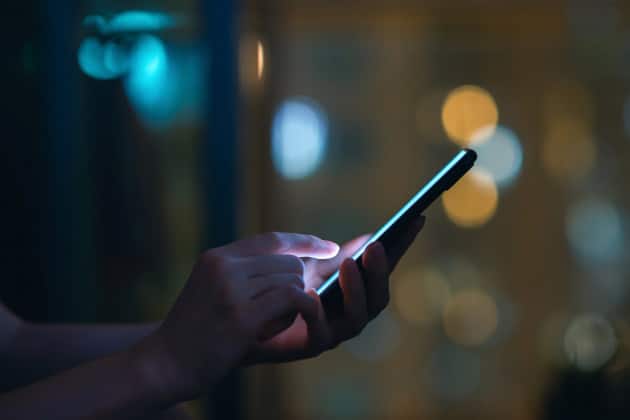An new app that can detect covid-19 in your voice has been developed in a major scientific breakthrough and could soon be adopted in low-income countries where PCR tests are more expensive.
The AI-powered technology is easier to use and more accurate than a lateral flow test, scientists say.
The mobile app takes less than a minute to flag positive cases and gives an accurate result 89 per cent of the time and negative cases 83 per cent of the time.
In contrast, the accuracy of lateral flow tests varies widely depending on the brand and the nose and throat swabs are less good at picking up infectious people without symptoms.
Infection normally impacts the upper respiratory tract and the vocal cords and so researchers decided to analyse changes in voices using an AI model to detect COVID.
The new app could be used to very quickly screen people for the bug before they attend mass events such as concerts and big sports matches.
It could also be deployed in poorer countries where gold-standard PCR tests are very expensive and often difficult to distribute.
The Dutch researchers say coronavirus usually affects the upper respiratory tract and vocal chords, leading to changes in a person’s voice.
The team decided to investigate whether it was possible to detect the novel virus in people’s voices.
When developing it, they used data from the University of Cambridge’s crowdsourcing Covid-19 Sounds App, which contains 893 audio samples from 4,352 participants, 308 of whom had tested positive for the virus.
How does the app work?
The app is installed on the user’s mobile phone and the participants report some basic details about demographics, medical history and smoking status.
They are then asked to record some respiratory sounds which include coughing three times, breathing deeply through their mouth three to five times and reading a short sentence on the screen three times.
The researchers used a voice analysis technique called Mel-spectrogram analysis, which identifies different voice features such as loudness, power and variation over time.
To distinguish the voices of Covid-19 patients from those who did not have the disease, the team built different artificial intelligence models and evaluated which one worked best at classifying positive cases.
One model called Long-Short Term Memory (LSTM) outperformed the others.
It is based on neural networks, which mimic the way the human brain operates and recognise the underlying relationships in data.
It works with sequences, which makes it suitable for modelling signals collected over time, such as from the voice, because of its ability to store data in its memory.
Researcher Wafaa Aljbawi, from the University of Maastricht, said: ‘These promising results suggest that simple voice recordings and fine-tuned AI algorithms can potentially achieve high precision in determining which patients have Covid-19 infection.
“Such tests can be provided at no cost and are simple to interpret. Moreover, they enable remote, virtual testing and have a turnaround time of less than a minute. They could be used, for example, at the entry points for large gatherings, enabling rapid screening of the population.”
If you would like your article/opinion to be published on Uganda’s most authoritative news platform, send your submission on: [email protected]. You can also follow DailyExpress on WhatsApp and on Twitter (X) for realtime updates.



